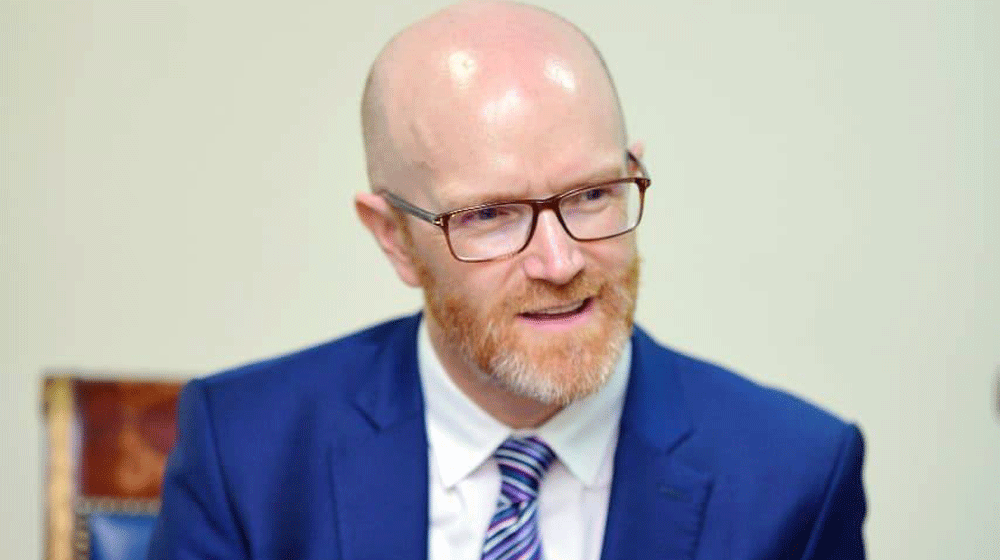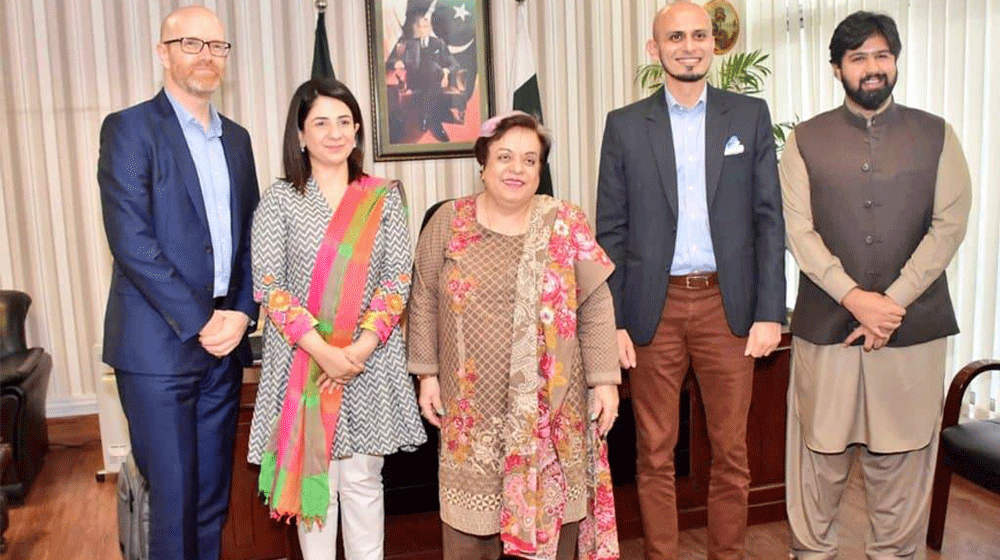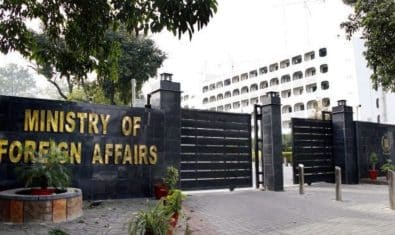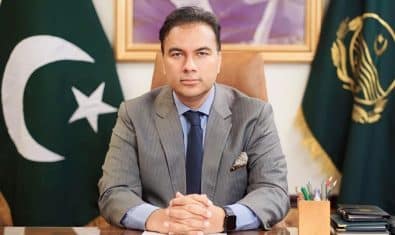Pakistan received a visit by a Facebook delegation led by Simon Milner, the Vice President (VP) of Public Policy for Asia-Pacific (APAC) earlier this week. The delegation met with various government officials, members of civil society and Facebook’s own community.
ProPakistani got a chance to sit down for an exclusive interview with Simon Milner in which we discussed Facebook’s initiatives in Pakistan, its impact and much more.
Q: What is the agenda your visit to Pakistan and meeting government officials?
We regularly meet with members of the government, civil society, and our community in Pakistan. In this week’s meetings we outlined our commitment to providing a place where people can express themselves freely and safely, and to helping small businesses and developers across Pakistan thrive. We also visited a blood bank in Islamabad.
With the blood donations tool, people can sign up to be donors on Facebook and get notified when people, blood banks, and hospitals near them need blood. In Pakistan, there are over 1 million blood donors signed up on Facebook and this number is growing.
Q: Tell us about Pakistan government’s requests for data. What is the process to accept/reject such requests?
We are deeply committed to protecting the rights of the people who use our service, and to enabling people to express themselves freely and safely.
We have strict guidelines in place to deal with all government data requests. Each and every request we receive is checked for legal sufficiency. As part of our process, we test for consistency with local law and international standards, including freedom of speech and freedom of assembly.
If our assessment demonstrates that there could be a conflict between a request and these rights then we refer it to MLAT (mutual legal assistance treaty processes) or other applicable international processes as an additional safeguard. Requests related to blasphemy would go through this process.
Transparency into the quantity of requests we get from governments is important and we will continue publishing reports about what governments around the world ask us for.
Q: What is the content and amount of information that you share with the Pakistani government, if required? Does it include the private messages of FB messenger, location, friend list or anything further?
We have strict guidelines in place to deal with all government data requests. In many of these cases, government requests seek basic subscriber information, such as name, registration date and length of service. As part of our process, we test for consistency with local law and international standards, including freedom of speech and freedom of assembly.
If our assessment demonstrates that there could be a conflict between a request and these rights then we refer it to MLAT (mutual legal assistance treaty processes) or other applicable international processes as an additional safeguard.
Q: How does Facebook moderate content on its platform?
We have a set of Community Standards that are designed to help people understand what is acceptable to share on Facebook. These prohibit hate speech, fake accounts, bullying and harassment, and credible threats of violence, amongst other things. Earlier this year, for the first time, we published the internal guidelines our review teams use to enforce our Community Standards — so our community can better understand what’s allowed on Facebook, and why.
We will remove content that violates these policies, regardless of who reports it to us. We are also getting better at proactively identifying violating content before anyone reports it, specifically for hate speech and violence and graphic content. Last month, we published our second Community Standards Enforcement Report. This report shows how much violating content we have detected on our service, so that people can judge for themselves how well we are doing.
Since our last report, the amount of hate speech we detect proactively, before anyone reports it, has more than doubled from 24% to 52%. The majority of posts that we take down for hate speech are posts that we’ve found before anyone reported them to us. Our proactive detection rate for violence and graphic content increased 25 percentage points — from 72% to 97%. This is incredibly important work and we continue to invest heavily where our work is in the early stages — and to improve our performance in less widely used languages.
Q: How has Facebook been enabling small businesses and women entrepreneurs in Pakistan? How does it plan to scale-up these projects and what impact it is aiming to create?
We want to help unlock the potential of Pakistan’s female labor force and empower women in Pakistan to participate in the country’s digital economy. SheMeansBusiness is a space that gives women the tools and resources to grow their business and, crucially, allows women to start their businesses from home.
We are committed to training 20,000 women entrepreneurs in Pakistan, in collaboration with partners like Universal Service Fund Company (USFCo) to help address, among other things, the digital gender gap in the country. One of our success stories as part of SheMeansBusiness is Nadia Patel Gangjee who harnessed the power of WhatsApp to grow Pakistan’s first women-only online market place with more than 2,700 female entrepreneurs and 150,000 members.
Launched in 2016, Sheops gives women a safe platform to buy and sell beauty, fashion and lifestyle products, enabling them to reach markets securely. To establish the Sheops brand and attract members, Nadia set up a business page and used it to engage the community by showcasing bestselling products on the shop section. Through Facebook Login, Sheops has ensured that only women can register and shop on the website – helping women to feel more comfortable trading amongst themselves.
Shameela Ismail is another Pakistan entrepreneur who is part of the SheMeansBusiness community. Following a series of personal career highs and lows, Shameela launched GharPhar, a female-led tech startup that provides professional beauty services to women in the comfort of their homes, in 2016. GharPhar goes beyond beauty to focus on social impact – offering work opportunities in the beauty sector to semi-skilled women from economically marginalised backgrounds.
Q: How are other Facebook initiatives progressing in Pakistan?
We’re focused on innovation and helping the growing number of tech startups in Pakistan. Our Facebook Developer Circles has a thriving community of 7,800 developer community members across Islamabad, Lahore, Sahiwal, Gujrat, Faisalabad. These communities come together regularly to collaborate on the latest tools and technology that helps drive innovation and business.
Helping Pakistan’s community leaders create positive social impact is another of our priorities in the country. Our partnership with Idea Croron Ka (ICK) gave community leaders in Pakistan a national platform to share their stories and vision.
Each community leader will receive a grant of up to USD$20,000 (PKR240,000). We also launching Community Leadership Circles in Pakistan, a global program that gives community leaders the opportunity to come together to share best practices, participate in trainings and workshops, support one another, and meet in person on an ongoing basis.
Keeping our community safe and connecting people in meaningful ways is also important to us. We launched our Blood Donation product in Pakistan earlier this year because we want to make safe blood more accessible in Pakistan to all licensed blood banks and hospitals. We have an ongoing partnership with SBTP (Safe Blood Authority) to train blood banks on how to find volunteers donors through Facebook. Since the launch in March this year, more than 1 million donors have signed up for donating blood in Pakistan.
We’re also committed to working with operator partners to bring more people online and address the digital divide in Pakistan. For example, Facebook is working with telcos partners to help innovate and explore new ways to connect rural communities that don’t enjoy 4G and broadband coverage today.
As the Inclusive Internet Index shows, the barriers are not just on availability and affordability, but also demand, relevance and readiness. With more people connecting online for the first time, mostly through mobile devices, we’re taking the importance of online safety seriously.
We’ve been working on digital literacy programs with Telenor in Pakistan since early 2017. iChamp, our digital literacy and access program launched in partnership with Telenor, covered 1,800 schools nation-wide and has seen 663,000 students trained on Free Basics, which continues to provides access to basic free internet services such as news, sports, local jobs and government information, and Internet Safety.




























You got an exclusive opportunity to sit with VP of Facebook and you don’t any pictures to post. Charming.